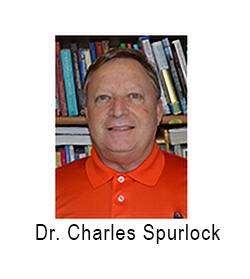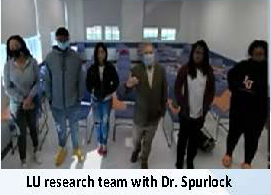
Socially Sustainable Solution for Black Oklahoma (S3BOK)
EPSCoR Update - June 2022
Climate concern research has focused primarily on analyzing White attitude polarization on climate issues. A climate concern gap exists within the White group along with the ideological lines of liberals and conservatives. The climate concern research has recognized the long-term gap between Whites and Blacks. With between-group differences, Black liberals show less concern than White liberals, and Black conservatives show greater sensitivity to overall environmental concern than White Conservatives.
As attitudes have shifted among Blacks and Whites, social science research lags in empirical and theoretical approaches to studying ethnicity, which is a critical variable in understanding climate concern. Some under-researched potentials that may account for the observed gap are differential exposure to environmental hazards, acculturation, and cultural orientations.
 Hence, Dr. Charles Spurlock, Assistant Professor of Langston University (LU), aims to familiarize the reader with the Black community in rural and urban Oklahoma to better understand the group’s sensitivities to global climate change.
Hence, Dr. Charles Spurlock, Assistant Professor of Langston University (LU), aims to familiarize the reader with the Black community in rural and urban Oklahoma to better understand the group’s sensitivities to global climate change.
During the summer of 2021, Dr. Spurlock reviewed articles framing a research area, which became the S3BOK project that he taught to students in the Fall of 2021. Students received training in social science research methods and used Code Lab supported by the Institute for Public Policy Research and Analysis in reviewing 120 newspaper articles explicitly written for Black communities. Students also applied questions derived from the Socially Sustainable Solutions for Water, Carbon, and Infrastructure Resilience in Oklahoma project for conducting qualitative interviews in support of a written paper while exploring key concepts in the S3OK project. Dr. Hank Jenkins-Smith, University of Oklahoma professor and co-PI of the S3OK project visited the LU research team multiple times over Fall 2021 to present the overall picture of the S3OK project and provide initial assistance.

The LU research team, mainly composed of students led by Dr. Spurlock, will take a deep dive into the rural and urban localities across the state, gathering data through in-depth and focus group interviews.
“Whether in-depth or focus group, our team structures the interviews with a survey guide and plans to transcribe and code each interview and apply the practice of memo writing as our research develops,” Spurlock said.
Initial interviews documented a problem with capturing the respondents’ understanding of extreme weather events. Understanding the impact of climate change in a drought-inflicted state and matching this to daily decision-making proved difficult when the respondent’s own understanding of extreme weather events was limited or not accessible during the interview.
“Our initial interviews yielded mixed results. Therefore, I have changed from a survey guide to a photo-elicitation method to explain to our respondents the extreme weather and fire events that are related to seasonal to sub-seasonal events impacting variable and marginal quality water supplies; water, energy, and transportation infrastructure; and terrestrial water and carbon dynamics,” Spurlock said.
“All of these activities have aided my students in understanding social science research as essential for taking steps towards a sustainable society,” Spurlock said.
“The project also promoted graduate education to undergraduate students who have traditionally not thought of this as a pathway to a professional career,” Spurlock added.
S3BOK project continues to investigate understudied environmental identity construction among minorities on the issues of environmental challenges. The information that will be gained from this study provides crucial information that frames potential policy into sustainable solutions for an inclusive public.
________________
Acknowledgment:
This work is supported by the National Science Foundation under Grant No. OIA-1946093 through OK NSF EPSCoR.
________________
